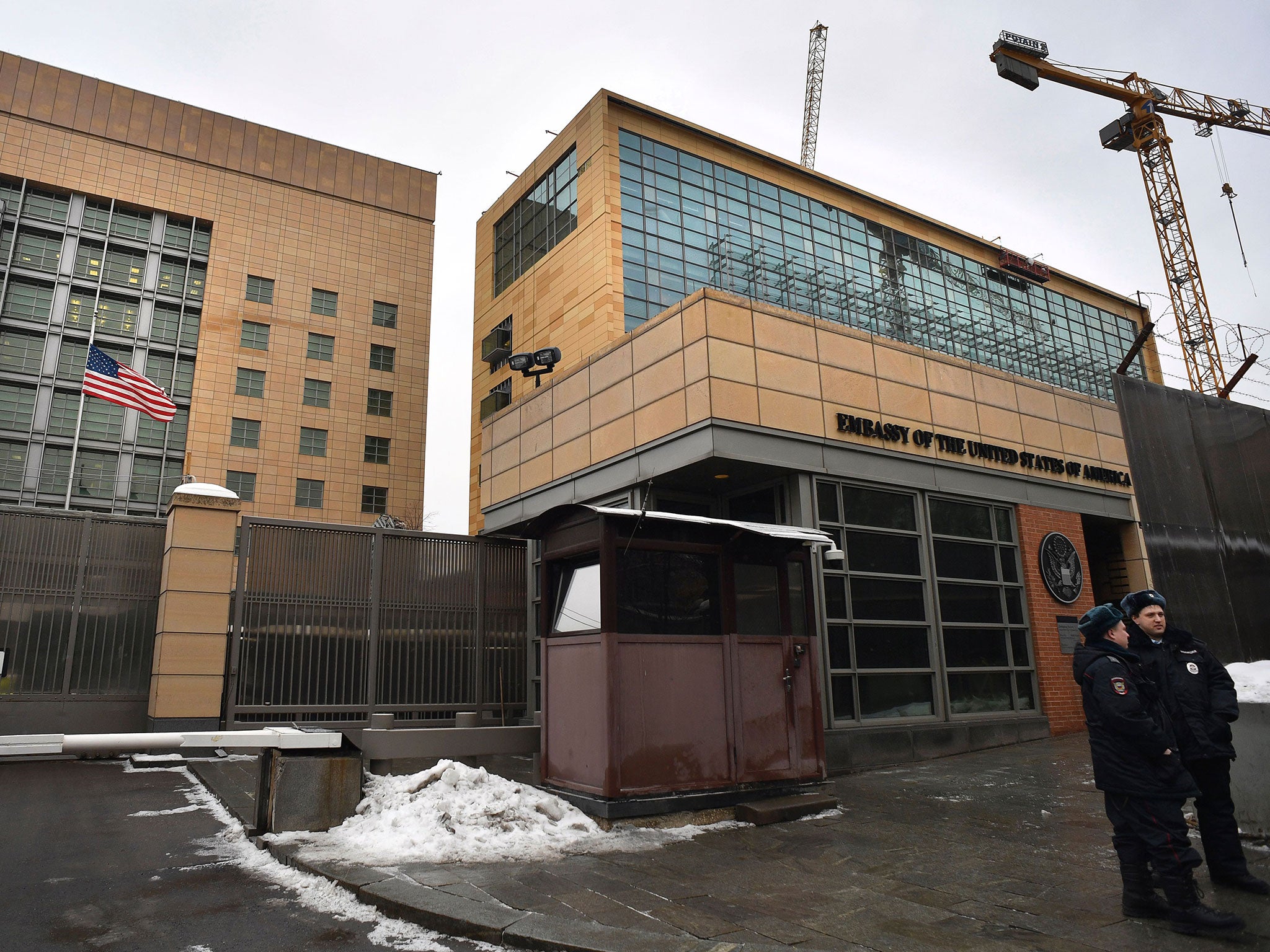Russia seizes American property in Moscow and cuts US diplomatic staff in retaliation to fresh sanctions
Embassy staff must leave the country by 1 September

Your support helps us to tell the story
From reproductive rights to climate change to Big Tech, The Independent is on the ground when the story is developing. Whether it's investigating the financials of Elon Musk's pro-Trump PAC or producing our latest documentary, 'The A Word', which shines a light on the American women fighting for reproductive rights, we know how important it is to parse out the facts from the messaging.
At such a critical moment in US history, we need reporters on the ground. Your donation allows us to keep sending journalists to speak to both sides of the story.
The Independent is trusted by Americans across the entire political spectrum. And unlike many other quality news outlets, we choose not to lock Americans out of our reporting and analysis with paywalls. We believe quality journalism should be available to everyone, paid for by those who can afford it.
Your support makes all the difference.Russia has ordered America to cut the number of diplomatic staff it has in the country and has seized a dacha compound and warehouse used by US officials in retaliation for new sanctions against Moscow.
Embassy staff must leave the country by 1 September, the Foreign Ministry said in a statement, in a move triggered by the US Senate’s near unanimous vote to slap new sanctions on Russia, further hurting its fragile economy.
The move puts Donald Trump in a tough position by forcing him to take a hard line on Moscow or block the legislation and anger his own Republican Party.
Russia’s Foreign Ministry also accused Washington of “extreme aggression in international affairs”.
The US embassy's recreational retreat on the outskirts of Moscow will be closed as well as warehouse facilities.
The number of American diplomats will fall to 455 under the plan, the Foreign Ministry added. It was not immediately clear how many US diplomats now serve in Russia.
Relations between Russia and the United States dropped to a post-Cold War low following Russia's annexation of Crimea and interference in eastern Ukraine in 2014.
Reports of Russian meddling in the 2016 presidential election have dampened hopes for better ties that the Kremlin pinned on Mr Trump's presidency.

The new package of sanctions aims to hit Vladimir Putin and his inner circle by targeting alleged corrupt officials, human rights abusers and crucial sectors of the Russian economy, including weapons sales and energy exports.
The bill underwent revisions to address concerns voiced by American oil and natural gas companies that sanctions specific to Russia's energy sector could backfire on them.
Russia's Foreign Ministry dismissed the new sanctions as "creating unfair competitive advantages for the US economy”.
"This kind of blackmail aimed at restricting the cooperation between Russia and other nations is a threat for many countries and global businesses," the statement said.
Russia's response mirrors moves by outgoing President Barack Obama last December to expel 35 Russian diplomats and shut down two Russian estates in the US.
Moscow said it would cut the US diplomatic corps even further if the U.S. decides to expel more Russian diplomats.
The Kremlin had previously said that it would not impose any sanctions on the US until Mr Trump signs the bill.
On Thursday the senate backed the sanctions bill, which also imposes sanctions on Iran and North Korea, by a margin of 98-2 with strong support from Mr Trump's fellow Republicans as well as Democrats.
It will now be sent to the White House for Mr Trump to sign into law or veto.
Additional reporting agencies
Join our commenting forum
Join thought-provoking conversations, follow other Independent readers and see their replies
Comments